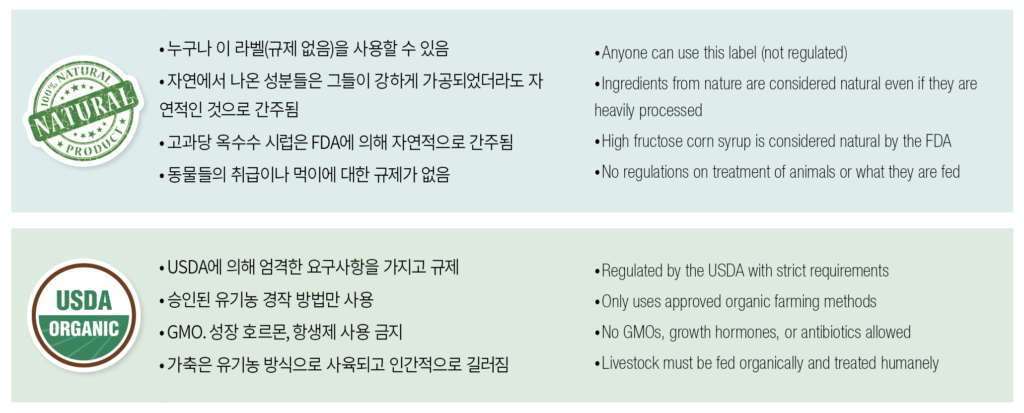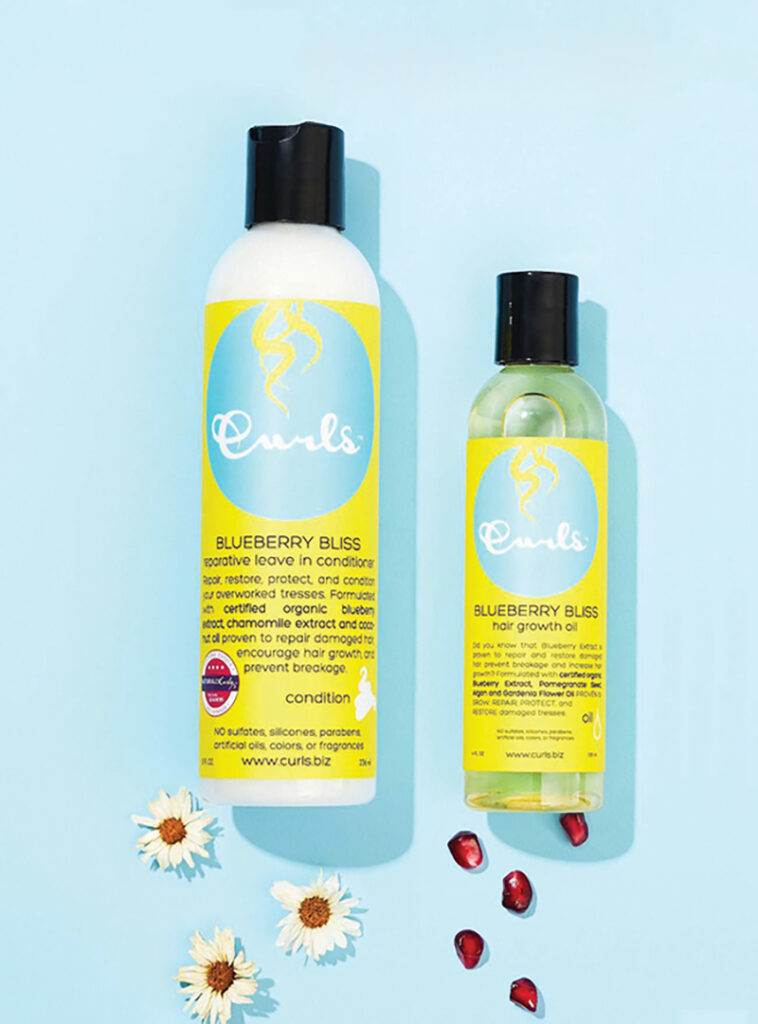
The rise of organic hair products is something out of ordinary.
Black hair is not only curly but coiled, making it more prone to breakage than other hair types, as well as being sensitive and particularly vulnerable to chemicals. Nonetheless, relaxers, hair colors, sprays, and gels are often used, many of which contain harsh chemicals and synthetic materials that can dry out hair and, in severe cases, cause hair loss. For this reason, Black hair care trends are bound to move in an eco-friendlier direction.
Sephora, with its slogan of good ingredients, cruelty free, and eco-friendly life, is expanding its Clean at Sephora line, and Target has created an organic product line Simple Balance. As shown, large retailers are already embracing organic products. Therefore, beauty supply stores should consider creating a line of organic hair products to meet the needs of increasingly savvy consumers.

Organic hair products are at the center of the popular trend.
According to Databridge, consumption of organic hair products will continue to grow across all racial groups. You can say organic hair products are quite fashionable. For one, consumers are increasingly concerned about their health and the environment, which naturally leads them to seek out natural and organic products. In addition, the internet and social media, where you can get product information easily and share opinions and reviews, have increased the positive perception of organic hair products. Then, what are the characteristics of organic hair products?
How rigorous is the organic certification process?
Organic certification follows different standards and regulations depending on the country and region. In the United States, federal standards must be met in order to be certified organic.
- Restriction of chemical pesticides and synthetic fertilizers: Organic agriculture restricts or prohibits the use of chemical pesticides and synthetic fertilizers. Instead, organic matter is used to protect crops and fertilize soil.
- Use of organic matter: Organic produce is cultivated with organic matter to maintain soil health and promote growth of crops. Organic matter is used as an alternative to chemical pesticides, improving soil and protecting ecosystems.
- Non-GMOs: Most organic regulations prohibit the use of genetically engineered crops. These regulations typically restrict or ban the use of biotechnology.
- Soil and water conservation: Organic farmers must maintain soil health and practice sustainable water management.
- Organic farm certification: Organic farms must be inspected periodically by the certifying organization that verifies compliance.
- Product labeling: Organic products are generally required to be labeled “organic” or “certified organic” to tell consumers that the products comply with the regulations.
- Organic chain management: The distribution of organic products must also comply with the regulations for certification. This can assure the traceability of organic ingredients and restrict mixtures of organic products.
Not all organic is created equal. (Classification of certification labels)
There are four types of organic certification labels.

Key ingredients in organic hair products
The following carefully selected ingredients are used in organic hair products. These safe ingredients work to nourish your hair from the inside out, making it healthier overall.

유기농 헤어 제품의 재료 (istock.com)
Ingredients in non-organic hair products
Non-organic hair products typically contain a variety of chemicals and synthetic materials. These ingredients are used to give specific properties to the hair product or to maintain and improve the quality of the product, including fragrances, preservatives, colors, etc. Below are some common ingredients you may find in non-organic hair products.
- Sulfates: Used in hair care products to create lather and remove excessive oil. Commonly used sulfates are “Sodium Lauryl Sulfate (SLS)” and “Sodium Laureth Sulfate (SLES)”. Some people find that these ingredients can dry out hair and irritate the skin, so people with sensitive skin and those with bleached hair should avoid them.
- Paraben: Parabens are used as preservatives and extend the life of hair products. Some studies have raised concerns that parabens may affect hormone levels, and consumers are increasingly trying to avoid them.
- Synthetic fragrances: Synthetic fragrances are used to give a product a scent.These fragrances can cause allergic reactions for some people.
- Silicone: Silicone is an ingredient that makes hair soft and shiny, but it can build up in your hair over time.
- Artificial colorants: Artificial colorants are used to give products a certain color, but they can also cause allergies.
- Alcohol: Alcohol is used in some hair sprays and gels to hold the style in place by evaporating quickly. However, excessive alcohol use can dry out your hair, so it should not be overused.

mielleorganics.com 내추럴 헤어의 흑인 여성
The relationship between African Americans and organic hair products
- Organic hair products minimize or eliminate harmful chemicals. This is especially important for Black hair as sensitive scalps and curly hair can react more strongly to harmful chemicals. Organic products will minimize these problems and help keep their hair healthy.
- Organic hair products are built around natural ingredients. It’s designed for the typical hair types of African Americans, giving them multiple styling options. Not only that, but natural ingredients help to ensure that their hair is well nourished and protected from damage.
- Organic hair products often come from brands that don’t test on animals and employ sustainable manufacturing processes. This reflects a greater awareness of environmental protection and animal welfare and ultimately provides shoppers with better choices.
To summarize, organic hair products are environmentally friendly, safe, and can promote well-being while being an important tool for enhancing natural beauty. This natural beauty can allow African Americans to express their identity, and it will lead to a society that respects and unites around that expression.
Tip: Organic products and natural products are not the same thing.

cheatdaydesign.com
Organic certification requires a rigorous certification process as shown above. However, the word “natural” is not strictly defined by the FDA. Products labeled as “natural” typically contain no or minimal amount of artificial ingredients. However, natural labeling is primarily used based on the subjective interpretation of the manufacturer, and there are no set regulations or standards.
When shopping for hair products, and if you’re looking for natural or organic products, read the label carefully and look for the “USDA Organic” mark, which indicates that the product is certified organic meeting the standards set by the USDA Organic certification. You can also contact the manufacturer’s website or customer service to learn more about the product’s ingredients and regulations.
List of hair products with organic ingredients

kissusa.com
1. Argan & Macadamia Collection (certified organic) by KISS
These certified organic products are made with argan oil from Morocco and macadamia nuts from Kenya, and they are free of potentially harmful chemicals such as chlorides, paraffin, and parabens. It makes dyed or dry hair healthy and shiny. (From $7.99 on Amazon)

avalonorganics.com
2. Lavender Nourishing Shampoo & Conditioner Duo (certified organic) by Avalon Organics
Made with plant-based ingredients such as lavender and essential oils. It’s certified organic and a best seller on Amazon. No GMOs (genetically modified organisms), no chemicals like chlorides, paraffins, and parabens, and no harsh preservatives. (From $15.94)

curls.com
3. Curl Collection – CURLS Blueberry by Bliss
Formulated with organic blueberry extract, pomegranate seeds, argan oil, and gardenia flower oil. This product is proven to grow, repair, protect, and restore damaged hair and is perfect for use as a finishing touch to any curly hair style. ($12.81)

loreal.com
4. Farmer Fresh and Seed Obsessed by L’Oréal
Four L’Oréal employees with a passion for organic farming have launched a new professional beauty and hair brand called Seed Phytonutrients. This brand has made local environmental responsibility a part of its mission and has adopted seeds as a key ingredient. (from $19.00)

purador.com
5. PURA D’OR Anti-Thinning Biotin Shampoo and Conditioner
This is a very popular product with over 2,500 reviews on Amazon. It contains a blend of organic ingredients like argan oil, vitamin E, and tea tree oil that moisturize the scalp and promote thicker, fuller hair for both men and women. ($29.99)

mielleorganics.com
6. Rosemary Mint Strengthening Shampoo and Leave-In Conditioner by Mielle Organics
A best seller at Target, Mielle Organics Rosemary Mint Strengthening products are infused with biotin for the ultimate boost of hair strength. It supports the health and maintenance of natural hair types 3A through 4C and provides a broad-spectrum of nourishment for the scalp. It also leaves no residue. (From $8.99)

racosmetics.com
7. Batana Styling Butter & Batana Oil Strengthening 2-in-1 Shampoo and Conditioner by RA Cosmetics
RA Cosmetics Batana Styling Butter is a unique, all-natural formula that combines shea nut oil, batana oil, chebe oil, and vegetable glycerin to help maintain your natural style while providing extensive nourishment to your hair and scalp. It’s also characterized by leaving very little residue on the scalp. (From $8.99)